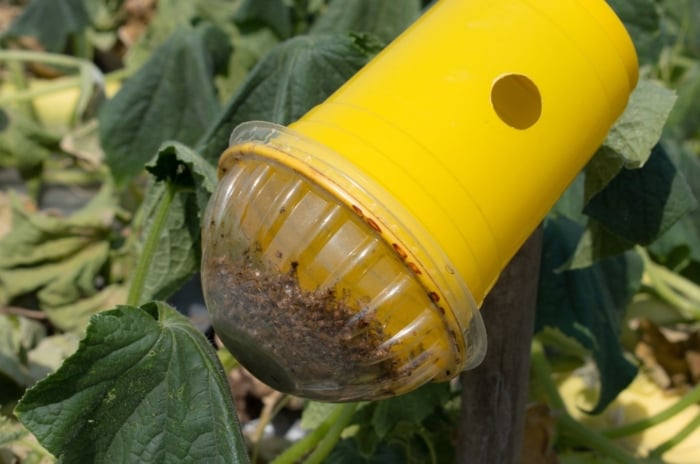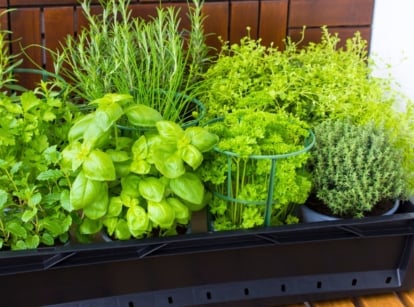3 Benefits of Wasps in the Garden
You might not know it, given their stinging reputation, but wasps are extremely helpful in the garden. Pollinator enthusiast Melissa Strauss makes the case for appreciating these flying frenemies, rather than chasing them off.
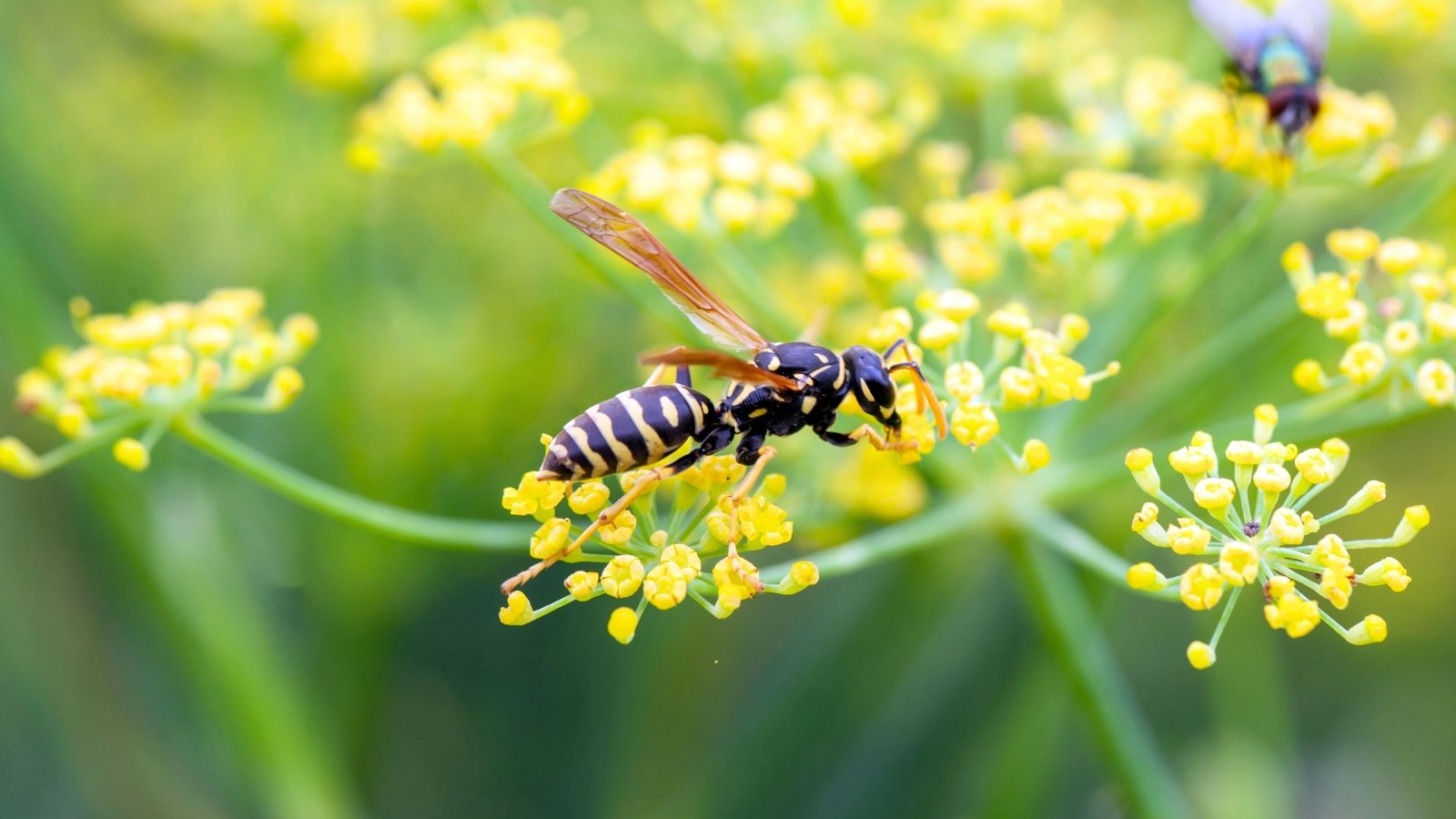
Contents
Wasps are often misunderstood. These garden insects are often labeled as aggressive. Because some of them sting as a self-defense mechanism, we tend to keep our distance from them. But what if I told you that these fascinating insects are actually great to have around?
Before we discuss their benefits, let’s take a moment to dispel a common misconception about these insects. Foremost, there’s the issue of stinging. Many of us have come up against the ire of a wasp whose home you got a little too close to. We’ve felt the stings, so it’s easy to view them as foes. But they may not be as much of a threat as they seem.
Here are a few unexpected benefits of wasps in the garden.
The Stinging Situation
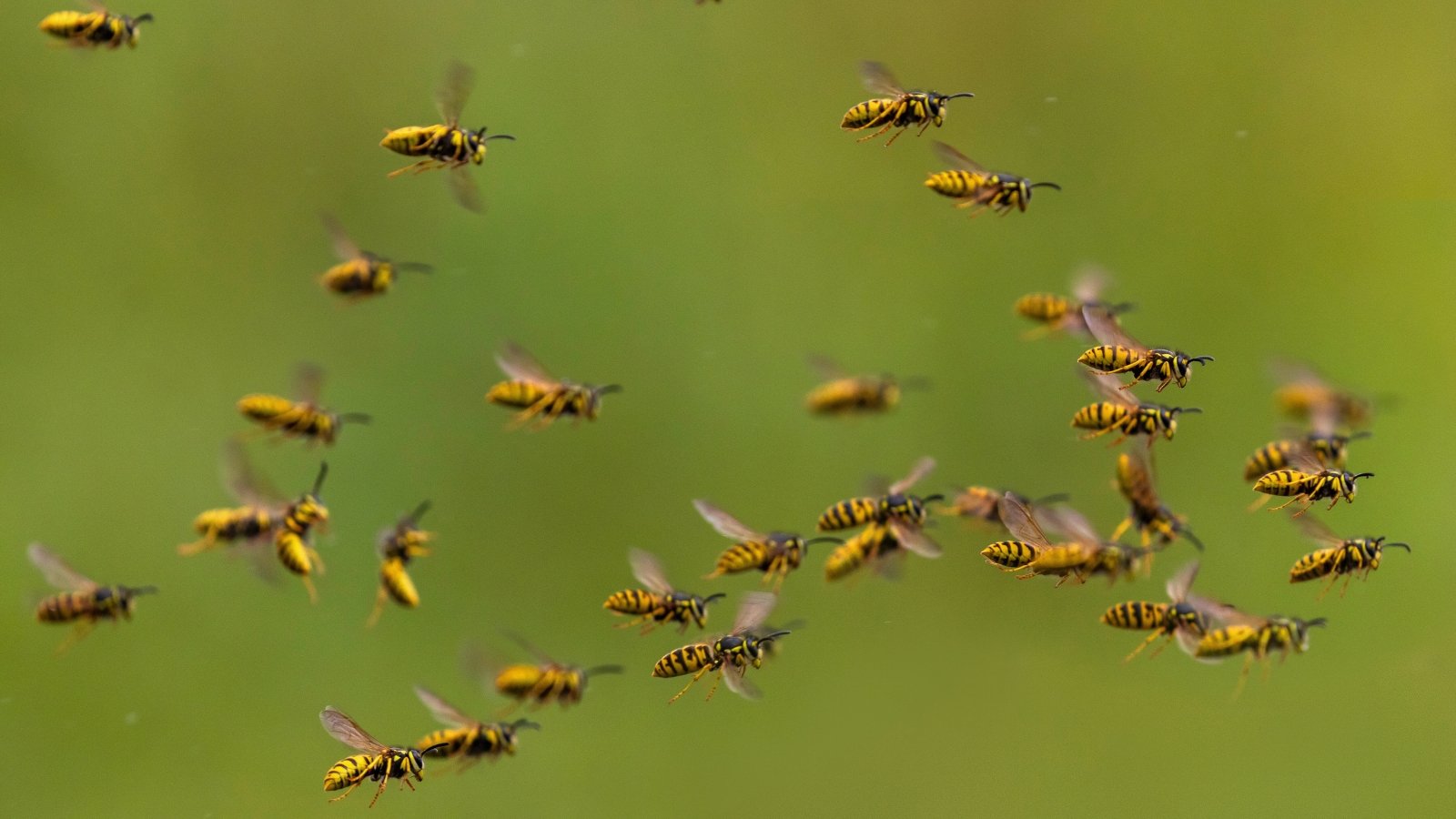
The reality is that many wasps don’t sting at all. The ones that do typically have a legitimate reason. Or at least, it seems that way to them. They aren’t naturally aggressive; they’re just defensive of their nests.
There are more than 100,000 known species worldwide. Many of them are capable of stinging, but there are only about 1,000 species globally that pose a threat to humans. Among these are paper wasps, mud daubers, potter wasps, hornets, and yellowjackets. These are all social, meaning that they live in colonies.
These social species sting primarily in defense of their nests and colonies. If you get too close to the nest, they will likely come at you and possibly sting. Even in these cases, it’s only females that have stingers, so males can only act tough.
Other types, such as solitary and parasitic species, may be capable of stinging, but they don’t commonly sting humans. So, of all those species, there are only a few hundred that are responsible for our fear of these insects.
We often perceive them as dangerous because of this possibility. However, they’re actually incredibly useful in the garden. If you can keep your distance, they do some pretty important jobs that make things easier for us.
Benefits of Wasps in the Garden
Understanding which wasps to steer clear of, and in what circumstances, makes them easier to appreciate. Being aware of their nests and deterring them from nesting in high-traffic areas is beneficial. If you can maintain a harmonious relationship with them, there are solid benefits to their presence.
Pollination
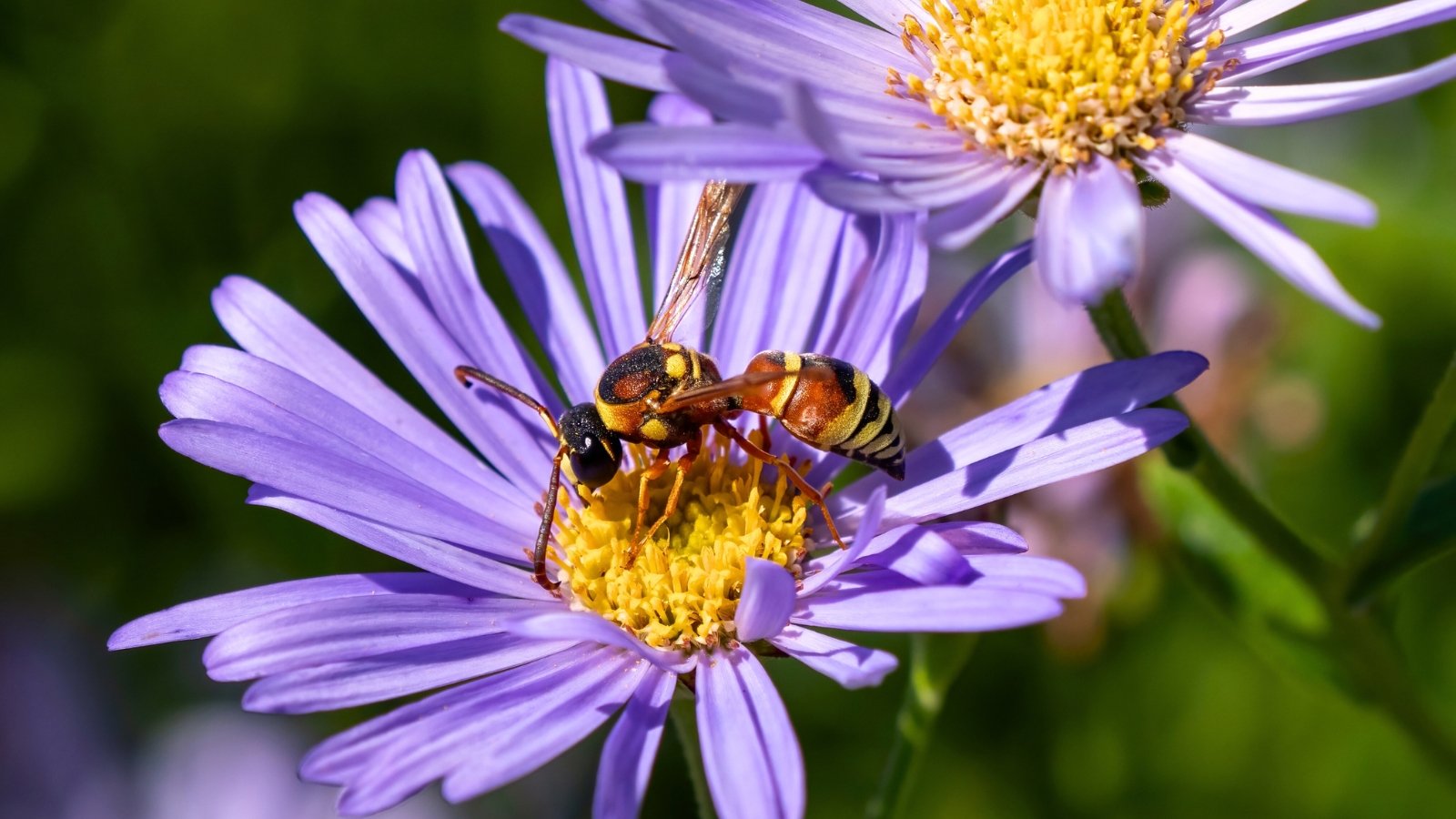
While wasps are not as efficient at pollination as bees are, they still play an essential role that can benefit your garden. They lack the same pollen-carrying ability as bees, due to their fuzzy bodies. But they do drink nectar, and in the process, they transfer some pollen between flowers.
Some of them pollinate incidentally; it’s just a result of their foraging for food. Others, like fig wasps, carry out specialized pollination. They are the exclusive pollinators of fig trees. These are incredibly important to the lifecycle of the fig tree’s reproduction.
Wasps favor flat, shallow, and open flowers, such as yarrow, milkweed, asters, and sunflowers. These provide easy access to nectar. They don’t collect pollen intentionally, like bees, but they do seek nectar. In this way, they contribute to the health and diversity of flowering plants.
Pest Control
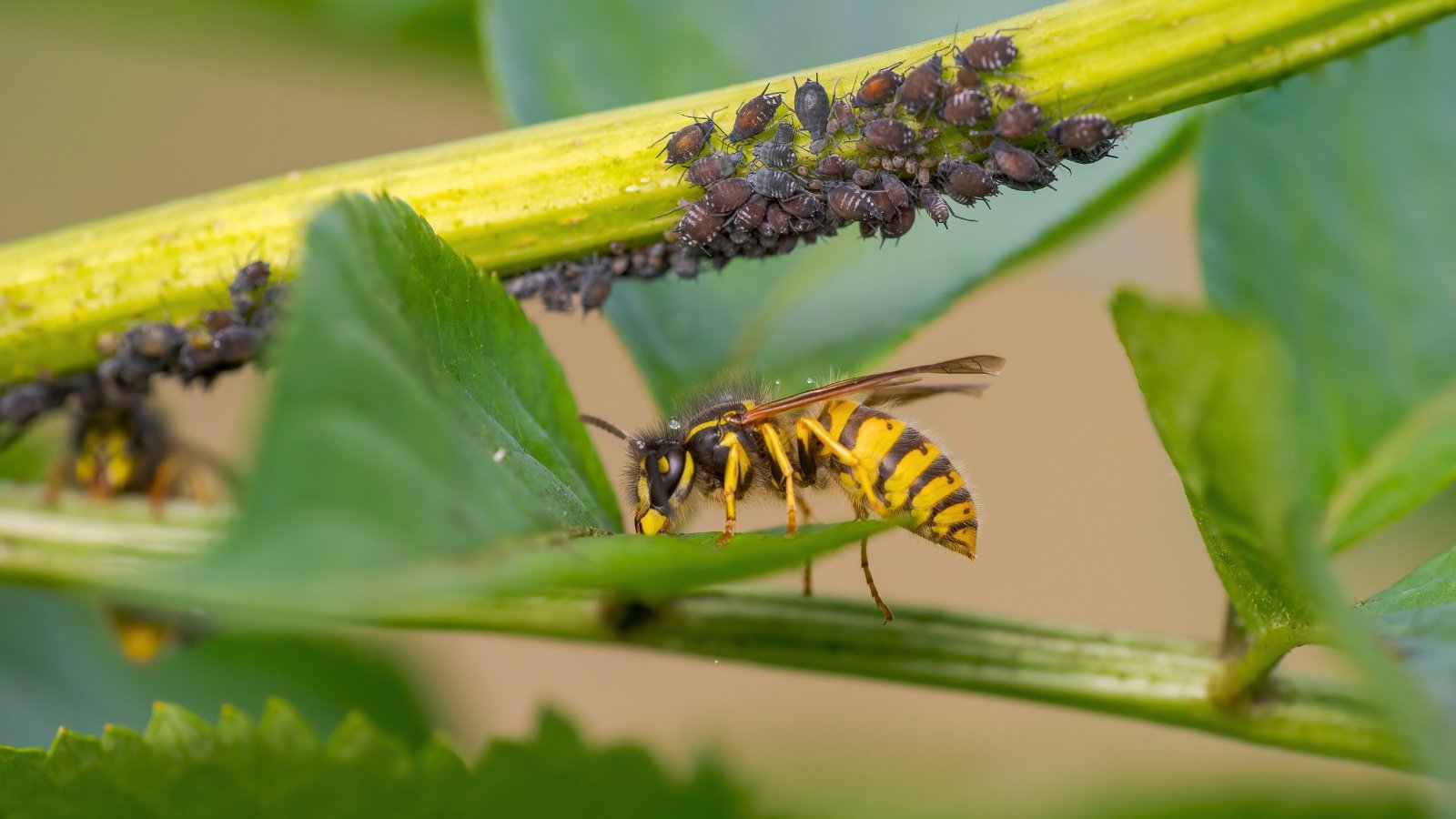
When it comes to pest control, wasps are the real MVPs. Many species are parasitic or predatory. They feed on insects and their eggs, or lay their eggs in the bodies of nuisance insects.
Predatory species include yellowjackets, mud daubers, and paper wasps. If that list looks familiar, it’s because these are the more aggressive species. They feed on aphids, caterpillars, whiteflies, flies, and grasshoppers. They chew up the pests and feed them to their larvae.
I’m a fan of anything that eats aphids. I would wager that most gardeners share this sentiment. Sadly, these species also eat caterpillars and don’t discriminate between them. So, they end up eating butterfly larvae, which I don’t love.
Parasitic wasps like Ichneumonidae, Trichogrammatidae, and Braconidae lay their eggs inside of pest insects. They target insects such as caterpillars, moth and butterfly eggs, aphids, and beetles, as well as their larvae.
The parasitic wasp’s eggs hatch inside the body of the host. Then, the larvae feed on the host from the inside. A gruesome thought, but it does help keep those populations down.
The benefits of parasitic garden wasps are substantial. It reduces the need for chemical pesticides in the garden. That is great for other pollinating insects. It’s a natural and sustainable pest control method that benefits you as well.
Ecosystem Support
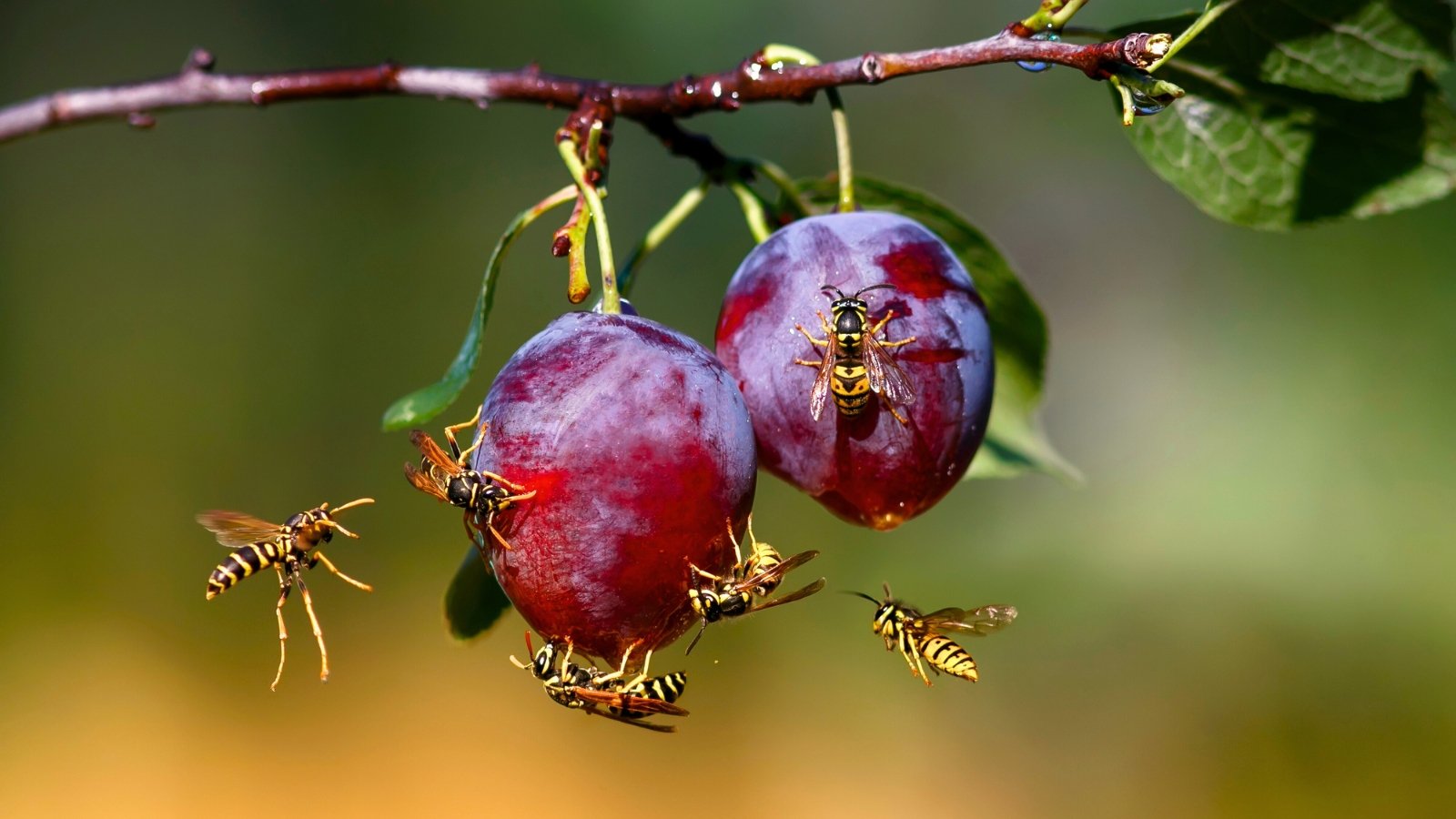
Both pollination and predation are beneficial to the garden ecosystem. As a natural pest control, they help to protect your crops and other plant life. They reduce the need for chemical pest control methods and support a more balanced food web.
As pollinators, these insects benefit the garden by helping to sustain plant diversity. They also cause plants to produce seeds and fruit, which are food for other wildlife.
Wasps themselves are a food source for many animals. Birds, frogs, larger insects, and some mammals are predators of wasps. They benefit the food web in both directions, as predators and prey.
Finally, they benefit the garden through nutrient cycling and aiding decomposition. Scavenger species, such as yellowjackets, hornets, and some paper wasps, feed on decaying fruit and dead insects. That’s why you’ll often see these species hanging around the picnic basket.
Scavenger species help to break down organic matter, enriching the soil. They clean up dead insects and animal remains. They also reduce the amount of decomposing waste that can carry diseases.
Key Takeaways
While we commonly think of wasps as nuisance insects that can inflict pain, they can be beneficial in the garden. They increase plant diversity and provide food for other wildlife, and reduce nuisance insect populations. They reduce the need for chemical pest controls, and even do some important cleanup work!



